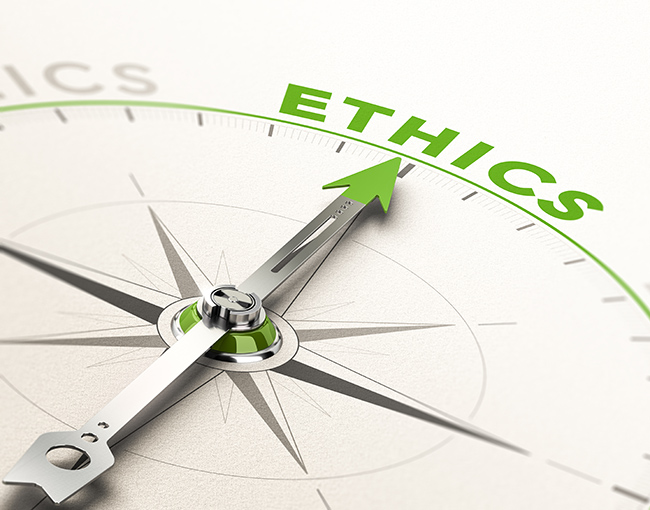Home > Insights > Publications > Connecting more: Two ways the revised OGE gift standards ease communication with government employees

Many companies are very familiar with the issues that arise when someone at the company wants to provide a Government employee with any item of value or wants to stay in touch with a former employee now working for Uncle Sam. These roadblocks are often due to the Standards of Ethical Conduct for Executive Branch Employees. Thanks to a final rule that the U.S. Office of Government Ethics (“OGE”) issued on November 18, 2016 (81 Fed. Reg. 81,641), the standards have been revised, and the roadblocks have been reduced in size.
The final rule — effective as of January 1, 2017 — revised the standards regarding Gifts from Outside Sources (“Standards”). Those Standards generally prevent Executive Branch employees from soliciting and accepting gifts from “prohibited sources” or gifts given because of the Government employee’s official position, unless the gifts fall within one of 13 enumerated exceptions.
The Standards are intended to help ensure that Executive Branch employees maintain integrity and impartiality, as well as the appearance of integrity and impartiality, but the prohibitions have at times stymied the provision of legitimate items that can help the Government. Indeed, even when an invitation or gift is within an exception, Executive Branch employees do not have carte blanche to accept them. Rather, as the revised Standards explain, they should still consider whether they ought to decline an otherwise permissible gift if accepting it could cause a reasonable person to question the employee’s integrity or impartiality. Thus, the Standards include a broad definition of “gift,” and conscientious Government employees often reject certain items if they believe accepting them will run afoul of the Standards. Indeed, if an Executive Branch employee is offered an item or is invited to an event that is not covered by one of the 13 exceptions, the Government employee will usually — and properly — reject the item or invitation.
With the help of the recent revisions, however, there are at least two things that Executive Branch employees are now more likely to accept:
Invitations to company alumni events. The OGE clarified its exception allowing an Executive Branch employee to accept gifts based on an outside business or employment relationship. The prior version described three types of outside business/employment relationships that may be a basis for an Executive Branch employee to accept certain gifts. The revisions addressed a common situation that arises when individuals move from the private sector to the Government. The OGE explained that this exception applies to business relationships, regardless of whether they are currently in existence or have ended. To clarify that position further, the OGE added 5 C.F.R. § 2635.204(e)(4), which states that an Executive Branch employee may accept a former employer’s invitation to a reception or similar event — as well as accept benefits provided at the event — if the company invites other former employees, the invitation and benefits are based on the former employment relationship, and it is clear the invitation and benefits have not been enhanced due to the Government employee’s official position.
Informational materials. The OGE added a new exception at 5 C.F.R. § 2635.204(m) that allows an Executive Branch employee to accept a gift of unsolicited informational materials. The exception defines “informational materials” as writings, recordings, documents, records, or other items that:
- Are educational or instructive in nature;
- Are not primarily created for entertainment, display, or decoration; and
- Contain information that relates in whole or in part to the following categories: (A) The employee’s official duties or position, profession, or field of study; (B) A general subject matter area, industry, or economic sector affected by or involved in the programs or operations of the agency; or (C) Another topic of interest to the agency or its mission.
If the aggregate market value of informational materials received from one person (which may be an individual, company, association, or other type of organization) does not exceed $100 in a calendar year, the Executive Branch employee may accept the materials, without the need to obtain a determination from the agency official designated to make determinations under the Standards (the “agency designee”). If, however, the aggregate market value from any one person exceeds $100 in a calendar year, the agency designee must make a written determination before the Executive Branch employee accepts the gifted materials.
Takeaways
Even if your company is a “prohibited source” under the Standards, there are at least two things that Executive Branch employees are now more likely to accept from your company. First, an Executive Branch employee who is a former company employee may be more likely to accept an invitation to one of your events that includes alumni. Your company, however, should be careful to avoid treating the Executive Branch employee differently from your other former employees. Second, to increase the likelihood that the Executive Branch employee will keep your informational materials, you should ensure that the market value of the materials does not exceed $100 per item, and that the aggregate value of the materials does not exceed $100 in a calendar year.
Jayna Rust is a member of the firm's Federal Practice group and works with corporate and governmental clients in navigating federal regulations, contracts, and litigation.
